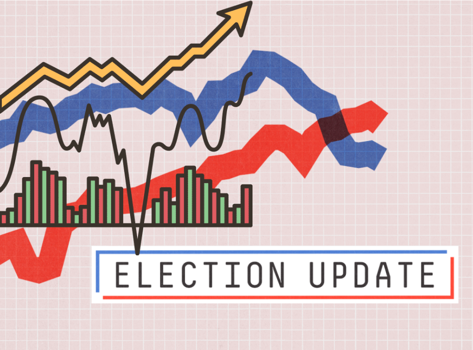S&P 500 Performance Post-U.S. Elections: Analysis, Market News & 2024 Outlook
2024-10-12

Introduction: S&P 500 & U.S. Elections – A Historical Perspective
The S&P 500 index has a history of fluctuating after U.S. presidential elections. From uncertainty leading up to election day to post-election rallies or declines, the market responds based on the anticipated policies of the incoming administration. However, the 2024 election presents a more complex landscape. Inflation, the Federal Reserve’s monetary policies, geopolitical tensions, and China's economic slowdown are creating significant market challenges.
Historical S&P 500 Performance After U.S. Elections
Historically, the S&P 500's behavior aligns with investors’ reactions to the new administration’s policies, especially on taxation, regulation, and trade. Here’s how the S&P 500 has performed after recent U.S. elections:
- 2016 (Trump Victory): After Donald Trump's surprise win, the S&P 500 surged by 5.4% by year-end, driven by expectations of tax cuts, deregulation, and infrastructure spending.
- 2020 (Biden Victory): Despite initial volatility, the market climbed 12% after Biden’s win, buoyed by stimulus plans and economic recovery initiatives.
- 2008 (Obama Victory): The financial crisis saw the S&P 500 drop 14% in the three months following Obama’s election, before stabilizing as his administration's economic policies took effect.
In most cases, the market stabilizes or rallies after elections, assuming that the new administration’s policies support economic growth.
Current Market Conditions: Key Factors Influencing 2024
Several critical economic and geopolitical factors will influence the stock market’s reaction to the 2024 U.S. election:
- Federal Reserve Rate Cuts: The Fed has signaled potential rate cuts heading into 2025. If rates are lowered, it could fuel a market rally by reducing borrowing costs and increasing corporate profitability, especially in tech and real estate sectors.
- Inflation: Although inflation has moderated from its 2022 highs, it remains above the Fed’s 2% target. Continued high inflation could temper market gains as the Fed pauses rate cuts, creating uncertainty.
- Geopolitical Tensions: Ongoing tensions in the Middle East and Russia create additional market risks. A more confrontational stance could hurt trade, while increased defense spending might benefit sectors like aerospace and defense.
Market Reactions: Trump vs. Harris in 2024
Trump Victory: Potential Market Rally
If Donald Trump wins the 2024 election, expect a market rally, particularly in sectors tied to deregulation, energy, and manufacturing. Trump's previous term saw policies that supported corporate profitability, including tax cuts and reduced regulations.
- Policies: Trump's likely policies would include further tax cuts and deregulation, which markets would likely view favorably. However, a renewed trade war with China could inject volatility, particularly in tech and consumer goods reliant on Chinese manufacturing.
- Sectors Impacted: Defense, energy, and industrials could perform well under a Trump administration, as his policies would likely focus on strengthening U.S. manufacturing and military spending.
Harris Victory: Market Uncertainty with Fiscal Stimulus
A Kamala Harris victory might bring market uncertainty, especially due to concerns over higher corporate taxes and increased regulation. However, her administration’s focus on green energy and infrastructure spending could support broader economic growth.
- Policies: Harris is expected to continue Biden’s policies on healthcare, renewable energy, and social spending. While this could benefit green energy and infrastructure, corporate tax hikes may dampen earnings growth for many U.S. firms.
- Sectors Impacted: Renewable energy, healthcare, and infrastructure could see gains, while tech and multinational corporations could face headwinds due to higher taxes and tighter regulations.
Conclusion: 2024 Election & the S&P 500’s Future
The 2024 election will play a pivotal role in shaping the S&P 500’s future. However, macroeconomic factors like inflation, Fed rate cuts and geopolitical tensions will also weigh heavily on the market. Whether Trump or Harris wins, investors should expect a dynamic post-election environment that will require careful navigation.


